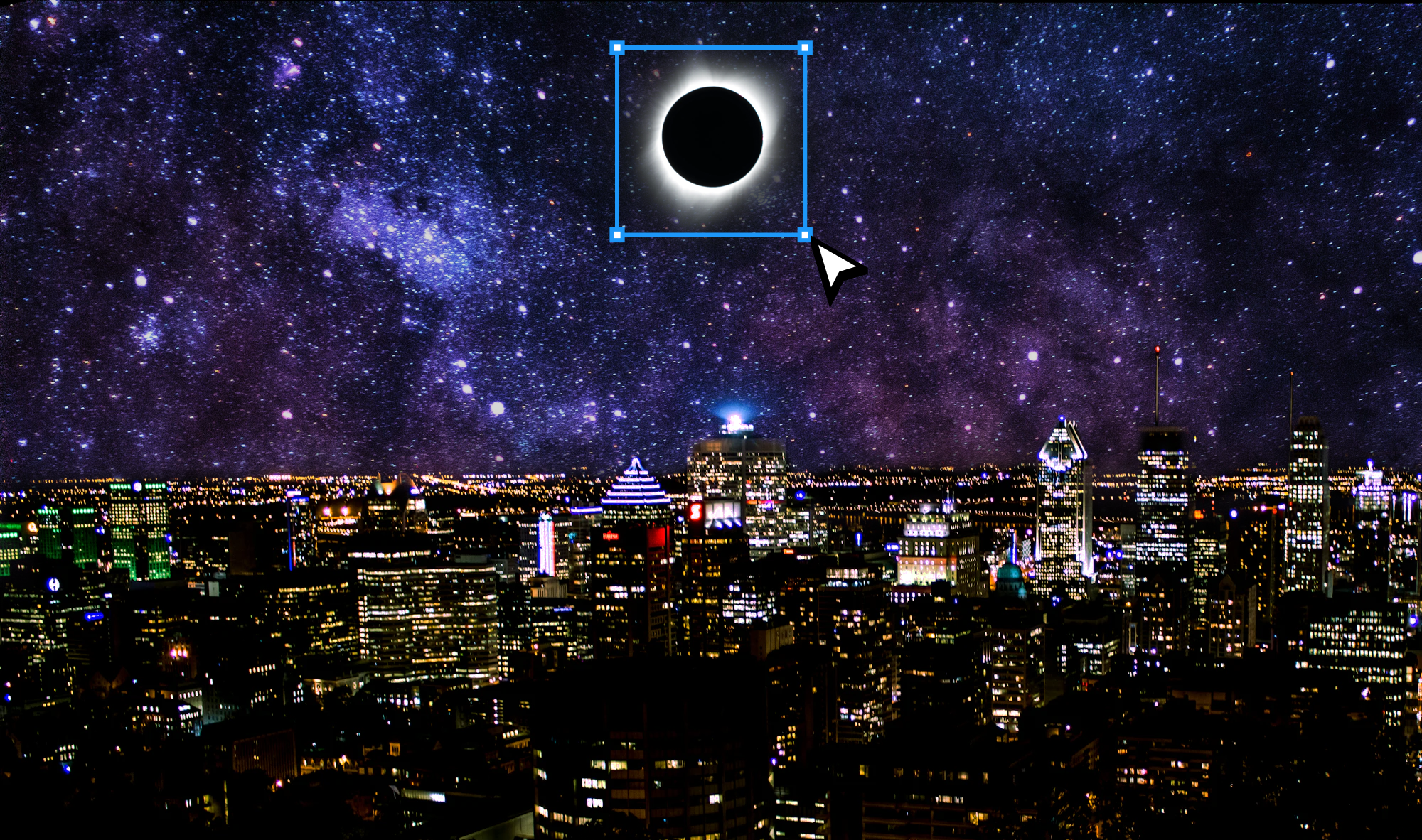I wasn’t particularly excited for the eclipse. Despite my building’s rooftop being directly in the line of totality, my feelings were veering on indifference. My partner felt otherwise. She had bought us glasses and made sure our schedule was clear.
When the time finally came, we went up to the terrace where some neighbours were already positioned, ready for the big moment. We sat on the ledge of a rooftop planter box. Next to us sat a family with three lively children arguing about which of their pairs of glasses was the coolest.
We looked up at the sun at the start of the eclipse and my initial lack of enthusiasm felt justified. It looked like a yellow circle with a little bite taken off. The minutes go by and slowly the sun begins to look like a crescent moon. Outside the glasses, nothing notable was happening.
Relatively quickly, as the moment of totality approached, the colour of the sky started changing. It took on a greyish purple hue and it felt like the earth was preparing for a sunset. Birds start chirping frantically. The wind picks up. This wasn’t what I was expecting.
Now, a few moments away from totality, there was a flurry of activity. Everyone’s attention was trying to take in all that was happening. Knowing we only have 90 seconds to look directly at the sun, I wasn’t sure where to focus. The environment was changing quickly and it was striking to process how rapidly the world changes if the sun were to just turn off like a light bulb. As the world went dark, people’s cheers and screams filled the silence previously occupied by singing birds.
The halo that took over the sun was an incredible sight, like something from an imagined sky of a fictional planet. The white haze gave the world a strange kind of night. It was cold and dark, but it also felt like there was a fluorescent office light in the ceiling of the world.
Incredible as this ring was, what struck me the most was how quickly we forgot that it was daytime only moments before. In our everyday lives, the smooth gradation from day to night is often invisible to us. After hours of darkness, the transition back to daytime is equally invisible. To most they sleep through it.
Witnessing the eclipse meant we got to feel those smooth transitions at a much faster rate. But if we only thought about the halo and stayed too focused on the sun itself, we’d have missed all the other beauty. We would have missed the effects of the sun’s sudden disappearance. We would have not seen the circular rainbow around the sun. Sure, the sun was the main event, but there is no such thing as a theatrical production that doesn’t rely on an incredible cast and crew. The white halo in the sky was glorious, but so too was the dark chill of this rare day.
It makes me wonder about how we see the world. How many times are we missing the supporting details because we’re too focused on the bright star directly ahead?
